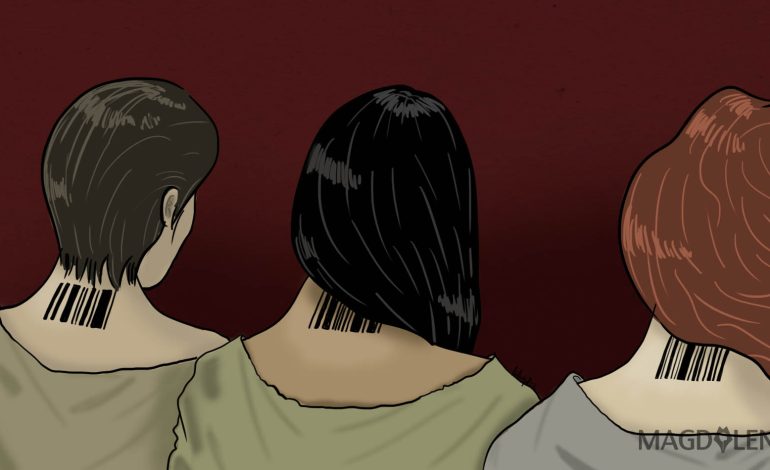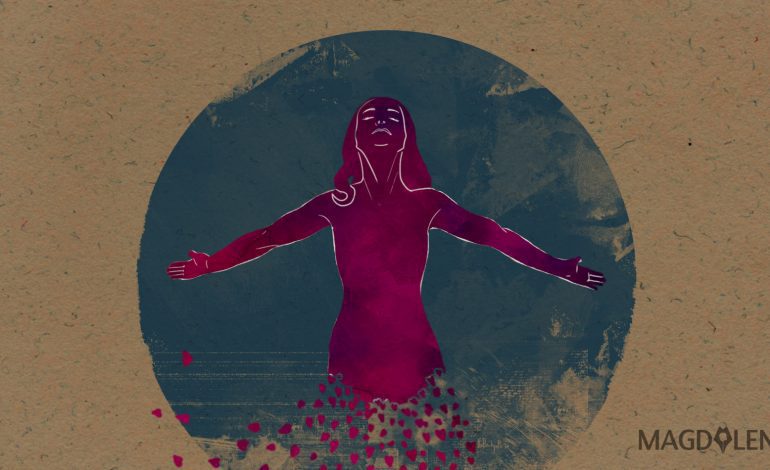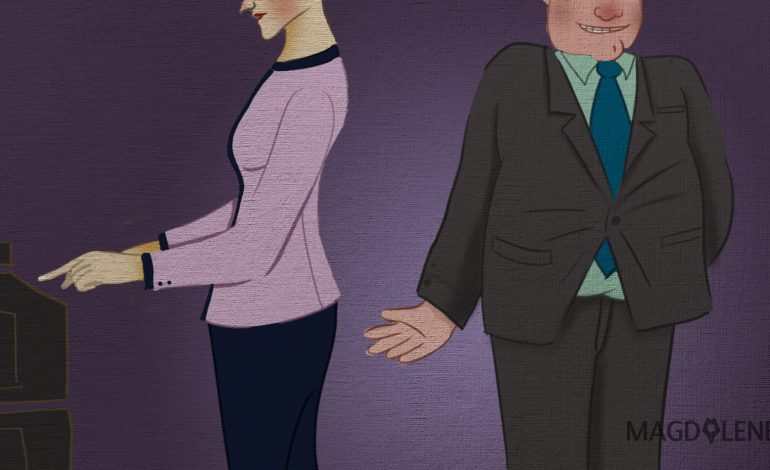Why China Builds a Prison Complex in Xinjiang

I was going to write about another development in our life – division, idealism, and the persistence of patriarchy. But just before writing, I read more distressing news from Xinjiang: more people are missing, including a photographer of Han ethnicity, which is the ethnic majority in China, and more Kazakh and Kyrgyz people. On the other hand, Chinese state media are getting more aggressive with their propaganda, saying that the prisons “turn terrorists into normal people” while comparing the Central Asians with Islamic State members.
When I started writing for Magdalene three years ago, I had a clear idea on what to write for Magdalene and what to write for newspapers. Feminism, sex and gender, and pop culture for this website, and international and domestic politics for newspapers. But our world has changed fast. Five years ago, I wrote an article about Xinjiang and it got printed. Now it seems impossible. Once I wrote an article about North Korea and it was rejected because “there’s no proof of human rights violations in North Korea.”
My biggest fear is that the article gets rejected (no print, no money). The next worse thing would be a formal protest. Few years ago, an ambassador protested a sentence that didn’t match his country’s official history, and I wrote a letter of apology to put it behind. Now editors might fear more serious repercussion if an article criticizing certain countries gets printed. South African journalist Azad Essa learned this the hard way when lost his column after writing about the Uyghurs, because his media group is minority-owned by Chinese firms.
Several Muslim Westerners and Muslim Indonesians asked why the mass incarceration of Uyghurs isn’t in the news, but, actually, it is in the news. It has been in newswires and international newspapers throughout 2018, competing with dozens other global and local news. What they are asking is why we don’t talk about it enough, why nothing significant has changed, and why everyone is not aware of it.
Xi Jinping became the leader of China in 2012 and was predicted to aggressively continue the rising presence of China in international politics, business, and technology. He had joined many other strongmen who repress political rivals, mainstream media, and grassroot movements. He also developed an infrastructure development project referred to as the One Belt One Road, covering the Indo-Pacific oceans and the European-Asian continent. China continued its gigantic investments worldwide in properties, infrastructures development, plantation and mining, and event sponsorship – World Cup in Russia was saturated with Chinese, instead of Russian, sponsors.

The Xinjiang prison camps caught Western journalists’ attention in 2016, as satellite photos revealed speedy development of walled facilities in the desert, and in 2017 Uyghurs diaspora worldwide reported that their relatives were missing. Uyghur diaspora in western Europe and Turkey also reported threats and terrors from Han Chinese men. Indonesian market watchers even detected sudden withdrawal of Chinese investment in some property projects.
The United Nations, the U.S., BBC and Reuters, and Human Rights Watch has raised the issue and provided evidence on the human rights violation that occurred at the camps, but China reacted in different manners each month. After first denying it, newspapers like Global Times and China Daily, spokespeople of the Foreign Affairs ministry, and ambassadors said that they were, indeed, “re-education camps”. The state television channel made a documentary showing Uyghur people in the camps studying Mandarin, baking flat bread, and dancing. English-language media and pro-Beijing accounts compared (positively) the camps to Guantanamo or detention camps for asylum seekers in the West, as if these were a positive thing.
Last month, Hong-Kong-based Indonesian journalist Yenni Kwok raised concern on the publication of an article in a progressive Muslim website, which claimed that China was “pro-Muslims”, that it was easy to find halal food in China, and that radical Islam is a serious problem in China. The article drew a comparison between the prison camps and Indonesian anti-terror measure.
The ensuing discussion revealed a sickening division in Indonesia. Conservative Muslims raised the Xinjiang story in their websites and the newspaper Republika, while a good number of Indonesian liberals believe that the prison complex is a hoax. Some think that standing up for Chinese-Indonesian minorities means standing up for People’s Republic of China.
Like Palestine, the Xinjiang camps are a humanitarian, not religious, concern. Western analyses believe that at the worst estimation, one million people could be detained there without formal charge and trial. Worse, several investigations have confirmed that Uyghur families have to provide lodging to Communist Party cadres, who would monitor their conformity to Han culture, including eating pork and drinking alcohol.
I believe Islamophobia and racism play a part in this sadistic policy. Geopolitical strategy is another reason, as Xinjiang lies on the ancient trading routes called the Silk Road, which China now rejuvenates as the One Belt One Road network. As a student of the history of China, I think there’s also historical reason.
More than previous leaders, Xi seems obsessed to restore China to its pre-industrial glory, when it was the richest and most advanced place on Earth. For most of its history, China was constantly threatened by Central Asian nomadic nations, and China had tried to bribe, co-opt, and fight them with mixed results. This prison complex could be his final solution for this Central Asian problem, as more ethnic Han are encouraged to migrate inland.
The state of world politics is in Xi’s favor. No Muslim-majority country condemns him, because they need Beijing’s good grace, because the Uyghurs aren’t Arabs, and no one wants to provide asylum to Uyghur people.
In Indonesian politics, Muslim hardliners could use the oppression against Uyghur to attack Chinese-Indonesians and the Jokowi government, who they portray as pro-China. We are supposed to respect the human rights of both the Central Asians and the Chinese-Indonesians, not just one of them. But it would be easy to lose track of the real issue, especially for those who don’t believe in humanity, and those who believe that hatred is an effective political tool.
Read the columnist’s take on being an introvert and follow @MarioRustan on Twitter.






















